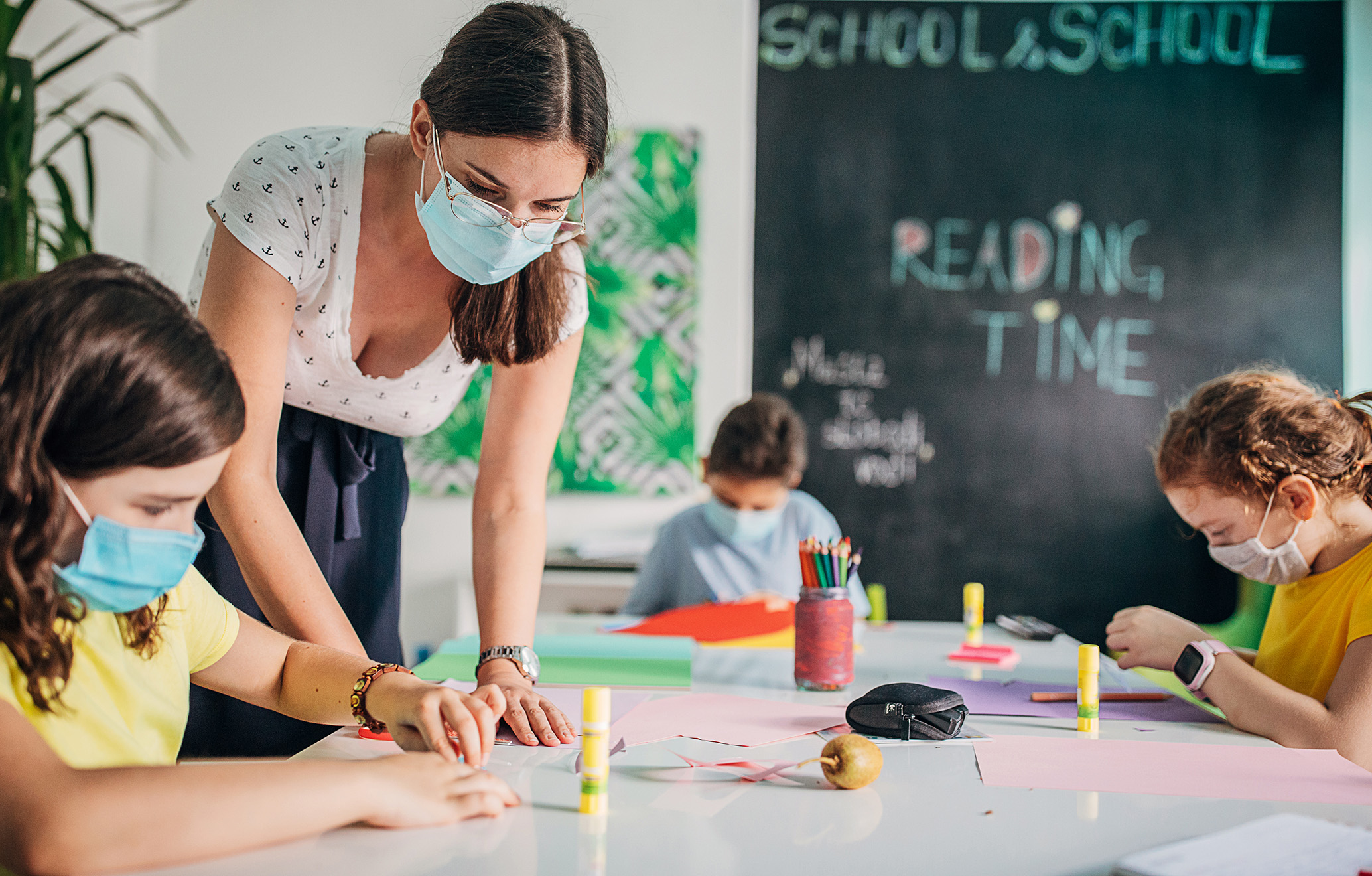This article explores how service dogs, emotional support animals and therapy dogs enhance the well...
Read MoreEffective Monday, January 5th, Inspira Health is now at Yellow Alert Status: Masks for staff, patients and visitors in all high-risk areas across our facilities are strongly recommended.


Across the country, children have been pulled out of their schools and daycare centers, largely without any explanation. Also canceled are their playdates, time spent on the playground and even trips to grandma and grandpa’s house.
At first, it may have been easy to tell them that they would only be missing school for a week or so, but a child’s sense of awareness is keen—in most cases, it doesn’t take long for them to know that something is up. So, how do you talk to your young ones about COVID-19?
“The first step is to evaluate how aware they are and what they already know,” says David Moore, RN, MSN, BC, Executive Director Mental Health Services for Inspira Health. “If they’re old enough to overhear and understand the nightly news, then most likely they already know that something is wrong.”
A child’s personality may lead them to be curious about why their routines have changed so suddenly, or it might not bother them at all. Follow their lead when having a conversation about the pandemic.
“If they want to talk about something, then it’s okay to have that conversation,” said Moore. “But, if they don’t express heightened concern or fear, you don’t have to go out of your way to explain things to them that may instill these bad feelings.”
Children often tend to believe that their parents are an encyclopedia of endless information, and it’s easy to keep up that image in their mind. During times like these, however, it’s important to be forthright with your child if you don’t know the answer to one of their questions.
“It’s much better to tell your child that you don’t know an answer as opposed to making something up,” said Moore. “A parent’s word is one of the most trusted things for a child, so it’s important that you don’t break that trust by telling them false information.”
Oftentimes, young children and teenagers are more concerned with the health of their friends and family members than their own. By setting up video calls with relatives and friends, your child will feel reassured that they’re safe and healthy, even though they may not be able to physically visit them.
“Knowing that their family is safe is a major concern for many children,” said Moore. “The best way to reassure them isn’t by simply telling them that they shouldn’t worry, but by allowing them to hear their loved ones’ voices and see their faces virtually.”
Inspira Mental Health Services offers counseling to those age 5 and older. We know that our patients might need extra support at this time due to coronavirus-related stressors especially when they have underlying emotional difficulties that may be exacerbated by the need to stay-at home or fear of COVID-19. At Inspira, we offer clients the opportunity to participate in therapy via a telehealth/virtual visit platform. For more information on current appointment availability call 1-800-INSPIRA.

This article explores how service dogs, emotional support animals and therapy dogs enhance the well...
Read More
Voluntary stays offer a proactive, empowered approach to mental health care by allowing individuals...
Read More
Social media poses risks to adolescent mental health, sleep and self‑esteem. By combining clear...
Read More